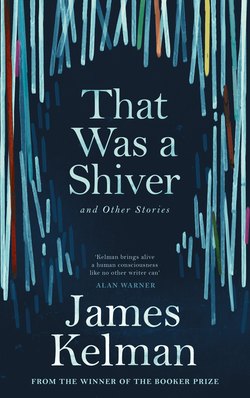Читать книгу That Was a Shiver, and Other Stories - James Kelman - Страница 10
На сайте Литреса книга снята с продажи.
ОглавлениеCLINGING ON
It occurred to me I was awake. From here was difficult. I had to remind myself that the ‘that’ was absent and its significance, its significance, the ‘absence’ or non-existence, or negation, and to piece together, or distinguish the several parts. In normal, or regular – I speak of the day-to-day – discourse or communication the sentence would have written as two part comprising two clauses: ‘It occurred to me that I was awake.’ A writer of prose might well have used a ‘that’ and therefore lost the meaning for the second clause ‘that I was awake’ slips into a past, or simply different, time zone. Whereas a poet might have written, or expressed the sentence separated by line-spacing, thus:
It occurred to me
I was awake.
Finer prose-writers are wary of making use of the poet’s devices. They do so, but cautiously. What is clearer now is the separation between the two clauses is not just ambiguous but offers a minimum two meanings and these may be conjoined principal statements: ‘It occurred to me’ and ‘I was awake’. And might be expressed, or written, ‘It occurred to me (I was awake).’ The difficulty is the use of brackets suggesting a banality which amounts not to tautology but, upon examination, of one statement the other may be found. Nought can occur if one is asleep. If the act of occurrence has occurred then certainly one is awake.
Following this I can express it thus: ‘I was awake; this realisation had taken hold of me’ and, the corollary, that I might be expressed as a sentence; if so the use of the term ‘might’ is the key to the evaporation of the space between us (me and reality). From here it follows that I may or may not be so expressed. I was aware of that. Oh God.
